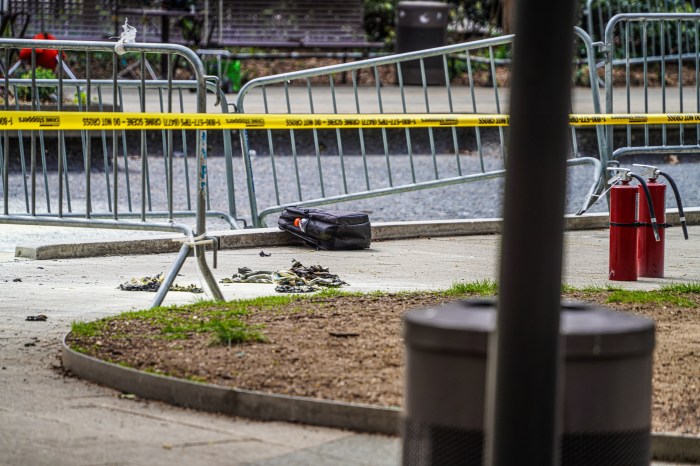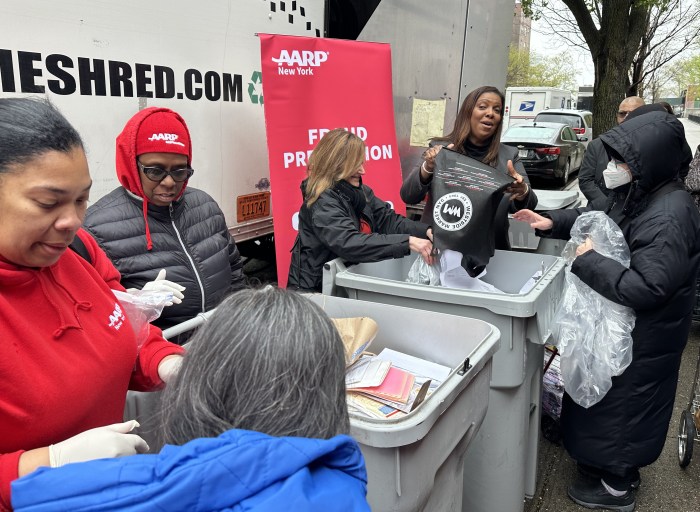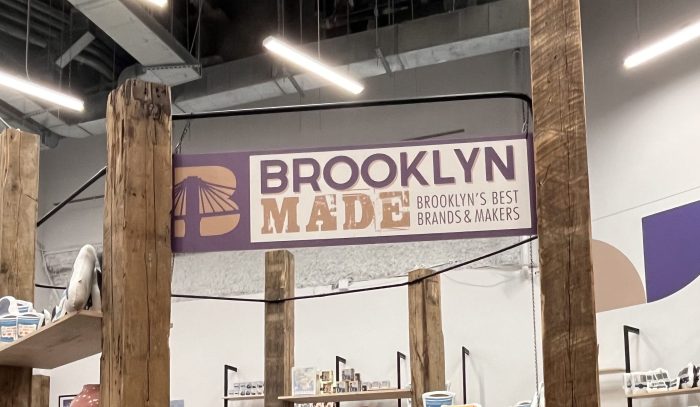
Monday evenings, downstairs at the All Souls Unitarian Church on Lexington Avenue and 80 Street, around a hundred volunteers scurry through the commercial kitchen and gathering hall that’s been transformed into a restaurant-style dining escape for 400 needy individuals. Complete with tablecloths, waiters, and music, the dinner experience is delivered by Monday Night Hospitality, a nonprofit founded at the church 38 years ago.
“All of us that serve on Monday night, at the end we’re incredibly tired and we feel incredibly good,” says George Collins, co-chair of Monday Night Hospitality. “We do feel we’re saving lives.”
“We believe that everyone, whatever his or her life circumstance, deserves to be treated with respect and dignity,” according to the organization’s website. Many of the dinner guests are homeless or struggling financially, and are elderly. A similar setup unfolds at the church Fridays for lunch, and the services include an accredited, paid social worker who meets with guests, helping them address emotional issues, housing and medical needs, and more.
Collins, an Upper West Side resident who runs Research & Response International, a database analysis company, has worked with the organization for more than 20 years. His team’s volunteer coordinator, Nancy Yates, is by day a creative director in advertising.

“We get to go to restaurants and be served all the time; they never get to do that,” Yates said of the guests. “To be able to serve people in a pop-up restaurant for 400 every Monday, it’s a great feeling.”
Yates, who lives on the Upper East Side, began as an ordinary volunteer at Monday Night Hospitality 13 years ago. She’s continued showing up in part because she’s developed personal relationships with some of the guests.
“It gives me a balance to my week,” she adds, “where no matter what is happening — the personal challenges that you’re going through — you can come, see people who need your time and your energy, and you can forget about yourself for a couple hours.”
Yates has passed this ethos onto her 11-year-old daughter, Phoebe, who checks coats for volunteers on Mondays as well.
Monday Night Hospitality helpers come from all walks of life. Collins says volunteers have ranged from lawyers to finance executives to police officers. Drew Barrymore, the actress and film producer, swung by in December 2017 as well, posting a picture with her and Yates on Instagram that garnered more than 100,000 likes. Barrymore captioned the picture in part with “I am blown away at what these people accomplish. I am coming here now to donate my time and I am truly humbled to my core.” Yates says the post led to a swell of Monday Night Hospitality volunteer inquiries.

Ruairi Curtin, co-owner of The Penrose, a bar and restaurant on Second Avenue and 82nd Street, has volunteered at Monday Night Hospitality several times. Some of his Penrose staff have done so as well, Curtin says, doing whatever was necessary, even beyond serving tables — washing dishes, wiping down tables and sweeping the floor after the proceedings.
“It’s very closely related to our business, that being hospitality, so our staff members were able to seamlessly slide into the roles required there,” Curtin says.
The Penrose also sponsored two Monday Night Hospitality dinners at $2,500 each. Noting the generally privileged populace of the surrounding neighborhood, Curtin adds, “We were just happy to contribute where we could and have a direct, positive impact on those who are most needy. It’s a really wonderful, important charity.”
Funding for Monday Night Hospitality, which Collins says commands a yearly budget of $130,000 comes entirely from donations, like that of The Penrose’s and other benefactors, who give via corporate grants and the organization’s annual fundraiser. With this year’s fundraiser, Monday Night Hospitality is seeking $150,000, as the kitchen is in need of an upgrade.
“Adding new freezers, repairing the current freezer, and adding a new ice maker are critical for the operation to continue, and hopefully expand in offering some food pantry items to guests to improve their diet,” Collins says about the current fundraising campaign. “Without it some of this infrastructure could fail, and the church did not have the funds to do that.”

Monday Night Hospitality is part of a larger Upper East Side network of several houses of worship, including the Jewish Temple Shaaray Tefila and the Jan Hus Presbyterian Church, offering similar meal services throughout the week. Collins says Monday Night Hospitality guests often take advantage of these other dining opportunities as well. All told the network provides over 18,000 meals a year, and with around 1.7 million city dwellers living in poverty, according to a recent NYU Furman Center study, it’s no wonder there’s such a demand — even in one of the city’s most affluent enclaves.
“It’s a critical component to my feeling part of the solution, in America, to homelessness and urban poverty,” says Collins, who exuded great emotion throughout his interview about the work of Monday Night Hospitality. “When you serve others it’s a way to feel better about the reason you’re alive.”

















